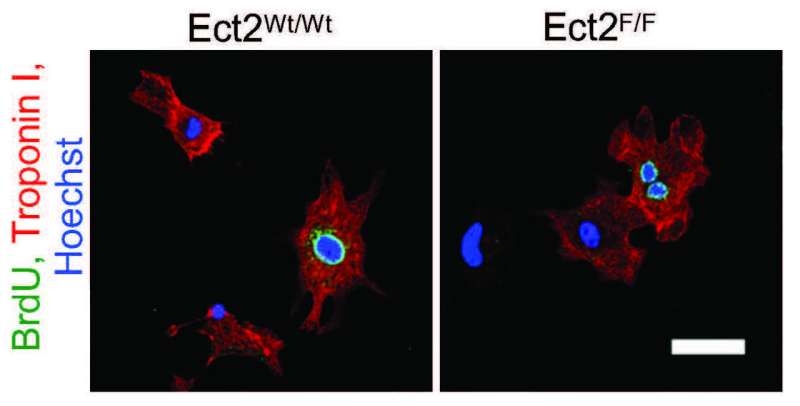Beta-blockers build heart muscle, may help infants with congenital heart disease

Surgery can mend congenital heart defects shortly after birth, but those babies will carry a higher risk of heart failure throughout the rest of their lives. Yet, according to a Science Translational Medicine study published today by UPMC Children's Hospital of Pittsburgh researchers, β-blockers could supplement surgery to regenerate infant heart muscle and mitigate the lasting effects of congenital heart disease.
"The question is no longer 'can we save this baby?'" said senior author Bernhard Kühn, M.D., associate professor of pediatrics at the University of Pittsburgh and director of the Pediatric Institute for Heart Regeneration and Therapeutics at UPMC Children's Hospital. "The challenge for our young patients is that we want to enable them to have a long lifespan, ideally as long as a person without heart disease."
For a relatively common congenital heart defect called Tetralogy of Fallot, treatment typically involves surgery at around 3-6 months of age, which is incidentally when heart muscle cells—cardiomyocytes—are at peak production. Decreased heart function during the first few months may be causing these infants to miss an essential opportunity to build heart muscle.
Kühn's team collected heart tissue from 12 infants who underwent corrective surgery for Tetralogy of Fallot, and found that more than half of the cardiomyocytes in these samples had started to divide but then got stalled midway through the process, like conjoined twins. The ultimate result was fewer cardiomyocytes overall, which makes the heart more vulnerable to damage later on.
"By the time our surgeons operate on these patients, the horse is already out of the barn," Kühn said. "Our data show that they have up to 30% fewer cardiomyocytes than a normal infant has at this age. That's significant. To put that in context, an adult's heart attack can destroy up to 30% of cardiomyocytes."
Through a series of experiments in human and mouse tissue, the researchers traced this cell division failure back to β-adrenergic receptors.
The natural next step was to ask whether the β-adrenergic receptor blocker propranolol—a common blood pressure medication—could stimulate proper cell division in infants wth congenital heart defects and improve heart function.

Indeed, in the heart tissue samples taken from infants with Tetralogy of Fallot, propranolol enabled dividing cells to separate properly.
And in mice, propranolol treatment during the first weeks of life allowed for better recovery from heart attacks in adulthood. Compared to untreated controls, mice who were given propranolol as pups retained 30% more cardiomyocytes and were able to eject 24% greater blood volume following a heart attack.
According to Kühn, having such promising results with a tried-and-true drug like propranolol means the pathway to clinical translation could be relatively quick.
"This all comes together in a very applicable way," Kühn said. "Propranolol was synthesized nearly 60 years ago, so we're able to bypass a lot of the ground work that would have to be done if we had identified a receptor that doesn't have a drug for it."
More information: H. Liu el al., "Control of cytokinesis by β-adrenergic receptors indicates an approach for regulating cardiomyocyte endowment," Science Translational Medicine (2019). stm.sciencemag.org/lookup/doi/ … scitranslmed.aaw6419


















